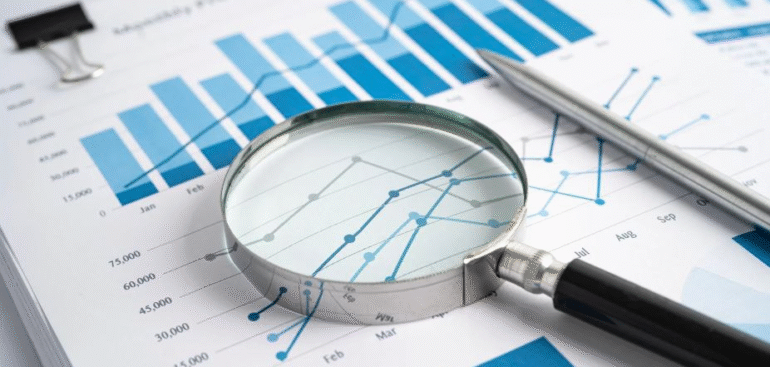Forensic Accounting Audit: The Key to Uncovering Fraud and Protecting Your Business
Fraud is an ever-present threat that can silently affect businesses, causing significant financial losses and reputational damage. Forensic accounting audit is the crucial process that helps identify, prevent, and manage fraud within an organization. By employing specialized knowledge in auditing, investigative skills, and financial analysis, forensic accountants play a vital role in safeguarding your business against fraudulent activities. In this blog, we will explore how forensic accounting audits work, the importance of fraud stoppers, and why incorporating a forensic audit can save your business from potential financial harm.
Understanding Forensic Accounting Audits
Forensic accounting audit is an investigative approach that combines accounting expertise with analytical and investigative skills to detect fraud, embezzlement, or other financial irregularities. Unlike a traditional audit, which primarily focuses on ensuring financial statements’ accuracy, forensic accounting digs deeper into the financial operations of a business, uncovering any hidden discrepancies that may indicate fraudulent behavior.
Forensic accountants employ a variety of techniques, such as data mining, financial modeling, and analysis of financial records, to identify inconsistencies in transactions, uncover hidden assets, and trace the flow of funds. Whether it’s identifying financial statement fraud, analyzing contracts, or investigating employee theft, forensic accountants are skilled at recognizing red flags that could otherwise go unnoticed.
Fraud Stoppers: The Essential Role of Forensic Accounting Audits
Fraud can take many forms, from simple cash theft to complex financial schemes that manipulate records or inflate profits. To prevent fraud from happening or detect it early, businesses must implement robust fraud detection mechanisms, and forensic accounting audits are the most effective tool for this job.
Fraud stoppers are professionals who specialize in identifying and stopping fraudulent activities before they cause significant damage. They employ a range of strategies, including:
- Detailed Financial Examination: Forensic accountants scrutinize financial records, tracing every transaction from start to finish, and often finding discrepancies that are not visible to others. This detailed examination helps uncover fraudulent actions like false invoicing, payroll fraud, or misappropriation of funds.
- Employee Fraud Investigations: Employees are often in positions where they can manipulate records or embezzle funds. Forensic accounting audits can help detect unauthorized access to company funds, fraudulent expense claims, or other forms of dishonesty.
- Data Analytics and Technology: Forensic accountants use sophisticated data analytics software to detect patterns in financial transactions that might indicate fraudulent activity. These tools are designed to spot inconsistencies that may go unnoticed in manual reviews.
- Legal Investigation: Fraud stoppers also understand legal procedures and often work closely with law enforcement or legal teams to ensure that any fraud discovered is addressed legally. They document the fraud findings in a manner that is legally sound and can be used in court if needed.
- Prevention Strategies: Beyond detection, forensic accounting auditors also help businesses develop anti-fraud strategies. By identifying vulnerabilities within the business operations, they can offer guidance on how to reduce the risk of fraud in the future.
Why Your Business Needs a Forensic Accounting Audit
Businesses of all sizes can fall victim to fraud, but the impact is especially severe for small and medium enterprises that may lack the resources to recover. Conducting regular forensic accounting audits can help businesses protect their assets, ensure compliance with financial regulations, and maintain their reputation in the market.
- Prevention of Financial Losses: Fraudulent activities can result in significant financial losses. A forensic accounting audit can help detect fraud early, preventing further damage and ensuring that any financial discrepancies are quickly addressed.
- Enhanced Fraud Prevention Controls: Regular forensic audits provide businesses with an opportunity to refine their internal control systems. By identifying weaknesses in accounting processes, forensic accountants can help businesses implement better fraud prevention practices.
- Improved Financial Transparency: Forensic accounting audits provide a clear, detailed picture of a business’s financial health, making it easier to identify any discrepancies. This transparency helps build trust with stakeholders, clients, and investors.
- Legal and Regulatory Compliance: A forensic accounting audit ensures that your business adheres to legal and regulatory requirements. In the case of financial fraud or misconduct, a forensic audit provides the evidence necessary to ensure compliance and mitigate potential legal consequences.
- Boosted Investor and Stakeholder Confidence: Investors and stakeholders want to know their funds are being managed responsibly. A business that consistently undergoes forensic accounting audits demonstrates a commitment to transparency, integrity, and financial responsibility, helping to build trust and attract investment.
Key Benefits of Forensic Accounting Audit for Your Business
Forensic accounting audits offer numerous advantages for businesses looking to protect themselves from fraud and financial mismanagement. Some of the key benefits include:
- Early Detection of Fraudulent Activities: Detecting fraud early helps businesses minimize losses and take corrective action before the damage becomes irreversible. Regular forensic audits enable businesses to identify red flags and take steps to mitigate risks promptly.
- Restoring Financial Integrity: If fraud has already occurred, a forensic audit helps to restore financial integrity by identifying the source of the problem and ensuring that necessary steps are taken to prevent recurrence.
- Dispute Resolution: In case of business disputes or legal issues, a forensic accounting audit can provide the necessary documentation to support claims or defend against accusations. Forensic accountants are experts at providing clear and accurate financial evidence that can be used in court.
- Protecting Company Assets: Protecting your company’s assets from fraud, theft, and mismanagement is crucial for long-term success. A forensic audit ensures that all assets are accounted for and properly managed, minimizing the risk of financial misappropriation.
- Peace of Mind: Knowing that your business is safeguarded against fraud allows you to focus on growth and success. Forensic accounting audits give you the peace of mind that your financial operations are transparent, secure, and in good hands.
How a Forensic Accounting Audit Works
The forensic accounting audit process is a detailed and thorough investigation that requires specialized expertise. Here’s an overview of how the process typically works:
- Initial Assessment: The process begins with an initial assessment where the forensic accountant understands the business’s financial situation, identifies areas of concern, and develops a strategy for the audit.
- Data Collection: Forensic accountants collect and examine all relevant financial documents, including bank statements, transaction records, invoices, and contracts. They may also interview employees or third-party stakeholders to gather additional information.
- Data Analysis: Once all the necessary data is collected, forensic accountants analyze the information to identify irregularities, inconsistencies, or patterns that may suggest fraudulent activity. They employ advanced data analytics techniques to process large volumes of data.
- Investigative Procedures: Forensic accountants often perform more in-depth investigations, such as tracing the flow of funds, analyzing electronic records, or reviewing financial transactions that may have been intentionally hidden.
- Reporting: After completing the investigation, forensic accountants prepare a detailed report that outlines their findings. This report will include a clear explanation of any fraud detected, the potential impact on the business, and recommendations for preventing future fraud.
- Legal Action (if necessary): If fraud is discovered, the forensic accounting audit can serve as evidence in legal proceedings. The forensic accountant may testify in court or assist in building a legal case against the individuals responsible.
The Importance of Working with Experts
Forensic accounting audits require a high level of expertise. Working with experienced forensic accountants ensures that the audit is conducted thoroughly, with attention to every detail. Professionals in the field understand the intricacies of financial systems and can identify signs of fraud that others may miss.
Experts in forensic accounting audits also understand the legal ramifications of financial misconduct, ensuring that all findings are well-documented and can withstand scrutiny in court. Their in-depth knowledge of fraud prevention and financial risk management enables businesses to take proactive steps to safeguard their assets.
Call to Action: Protect Your Business with a Forensic Accounting Audit
Fraud is an ever-growing threat to businesses, but with the help of forensic accounting audits, you can detect and prevent fraudulent activities before they cause significant damage. The importance of fraud stoppers cannot be overstated, as they help safeguard your business’s financial health and integrity.
Don’t wait for fraud to harm your business—take action today to protect your assets. Contact us today at (877)-399-2995 or visit Mortgage Audits Online to learn more about how our forensic accounting audits can help your business stay secure and financially stable. Let our team of experts assist you in preventing fraud and ensuring the long-term success of your business.
Conclusion
Forensic accounting audits play a crucial role in detecting and preventing fraud within businesses. By leveraging the expertise of fraud stoppers, businesses can protect themselves from financial harm, ensure legal compliance, and maintain financial transparency. With the added benefit of forensic accountants’ investigative skills, businesses can gain peace of mind knowing their finances are secure. Don’t risk the future of your business—ensure its success with regular forensic accounting audits and fraud prevention strategies. Visit Mortgage Audits Online today to get started!







